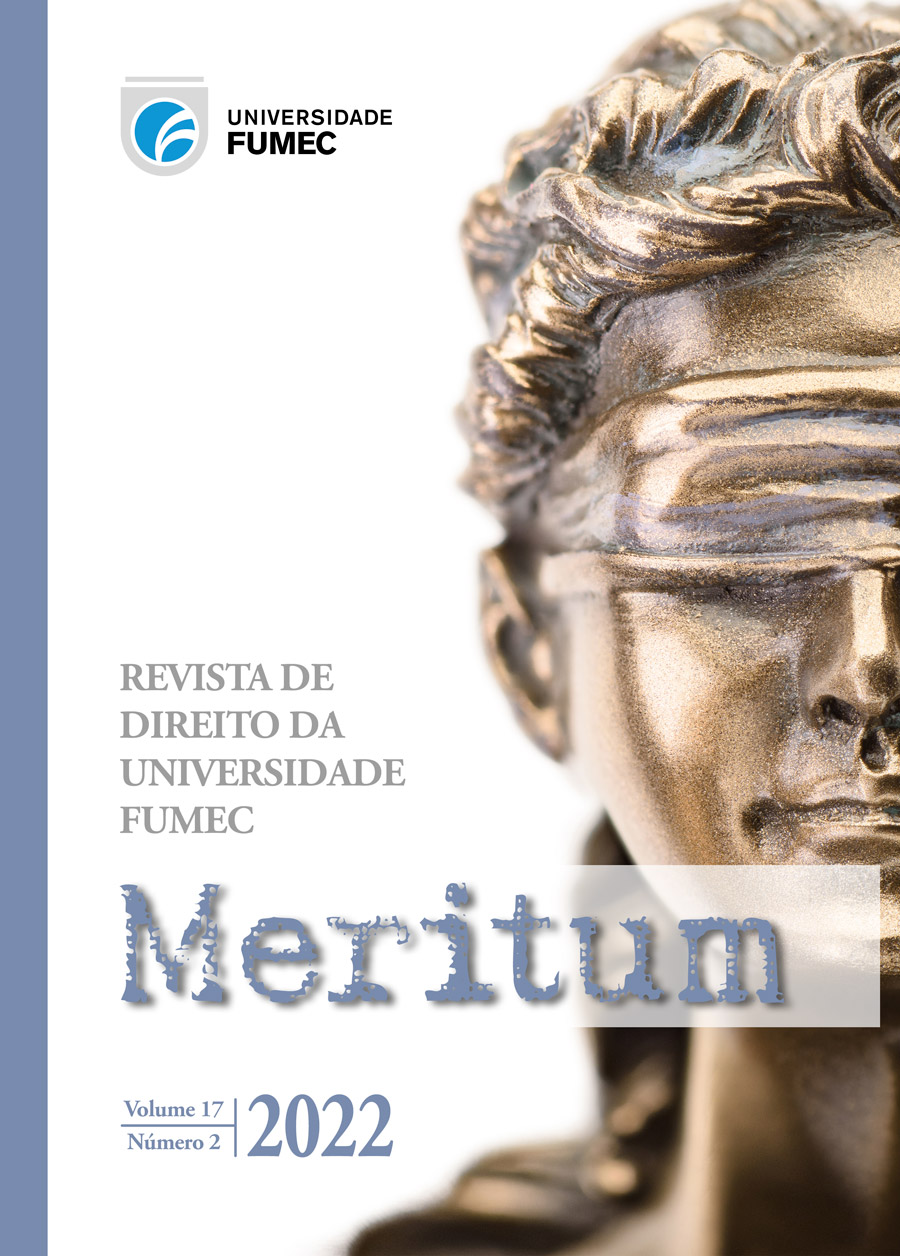TRANSNATIONAL COMPANIES, GLOBALIZATION AND UNDERDEVELOPED COUNTRIES: HUMANIST CAPITALISM AS AN INSTRUMENT FOR EFFECTIVENING THE HUMAN RIGHT TO DEVELOPMENT
O CAPITALISMO HUMANISTA COMO INSTRUMENTO DE EFETIVAÇÃO DO DIREITO HUMANO AO DESENVOLVIMENTO
DOI:
https://doi.org/10.46560/meritum.v17i2.8594Abstract
Transnational companies in the globalized scenario operate in several countries with the purpose of reducing costs and increasing profitability, and in underdeveloped countries it presents itself as a favorable means for this, since these countries have more flexible laws, cheaper labor and inefficiency regulatory framework. These concerns are not shown to be in line with issues related to human rights. Thus, this study aims to analyze Humanist Capitalism as one of the essential instruments for the realization of human rights and, consequently, the promotion of the human right to development. The research will be carried out through a literature review, bringing the main concepts related to the theme, and, using the deductive method, it shows that human rights are not respected in the face of violations practiced by transnational companies, which affects development human and social inequality increases. It is concluded that Humanist Capitalism meets the proposals of the human right to development, as seen for economic progress, thus making human rights effective in all dimensions, including meeting the precepts of the Brazilian economic order.
Downloads
Published
Issue
Section
License
Autores que publicam nesta revista concordam com os seguintes termos:
- Autores mantém os direitos autorais e concedem à revista o direito de primeira publicação, com o trabalho simultaneamente licenciado sob a Licença Creative Commons Attribution que permite o compartilhamento do trabalho com reconhecimento da autoria e publicação inicial nesta revista;
- Autores têm autorização para assumir contratos adicionais separadamente, para distribuição não-exclusiva da versão do trabalho publicada nesta revista (ex.: publicar em repositório institucional ou como capítulo de livro), com reconhecimento de autoria e publicação inicial nesta revista;
- Autores têm permissão e são estimulados a publicar e distribuir seu trabalho online (ex.: em repositórios institucionais ou na sua página pessoal) a qualquer ponto antes ou durante o processo editorial, já que isso pode gerar alterações produtivas, bem como aumentar o impacto e a citação do trabalho publicado (Veja O Efeito do Acesso Livre).






